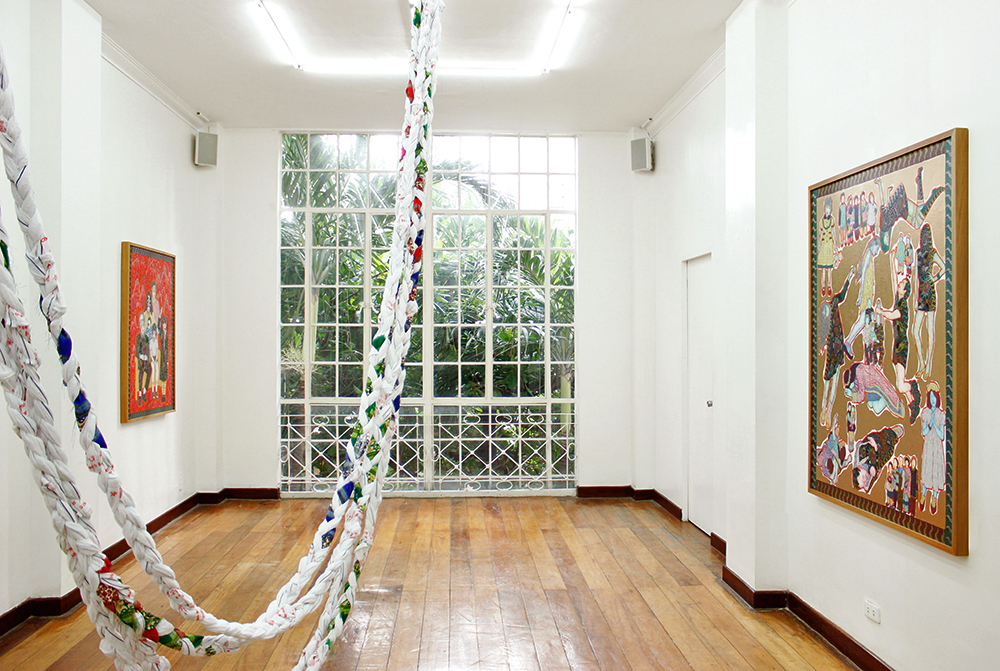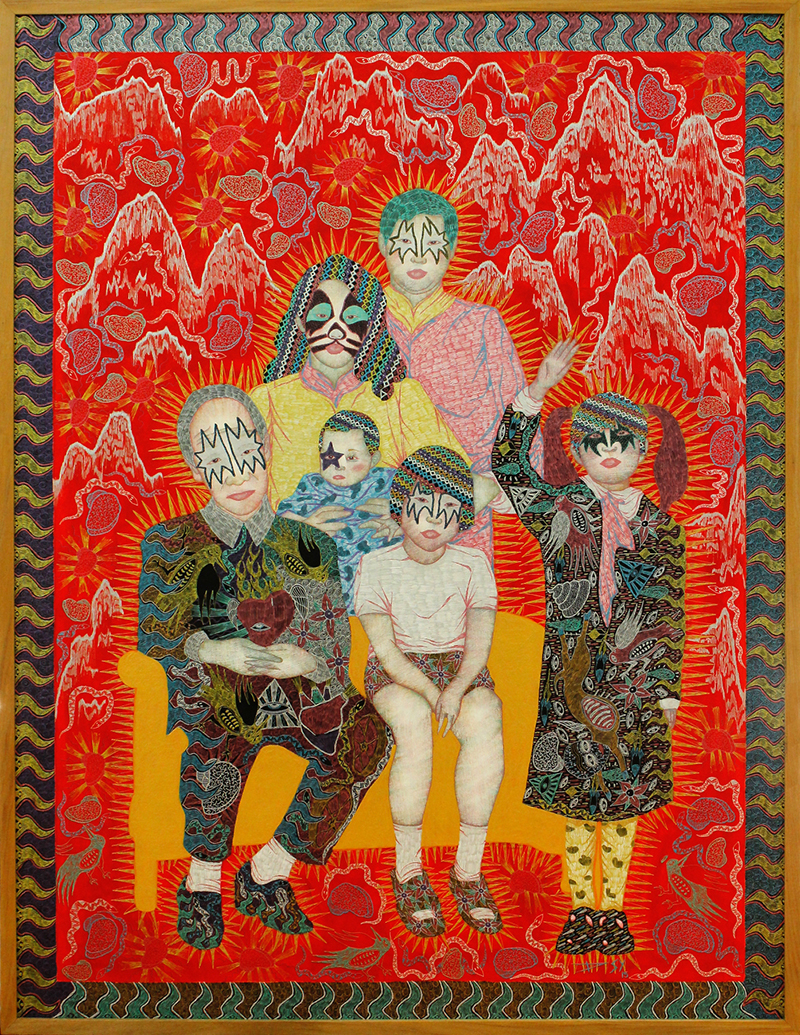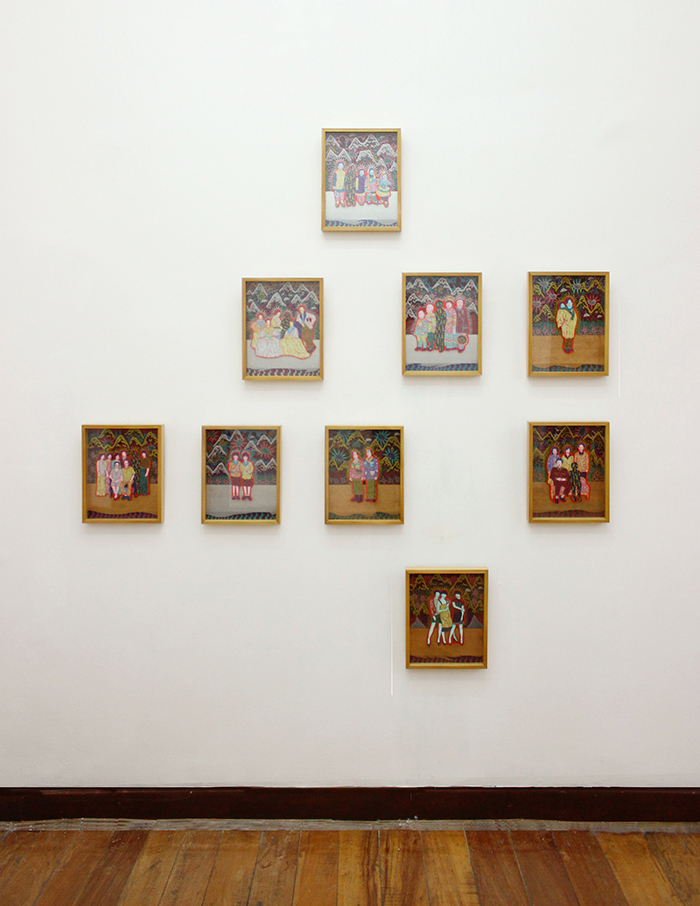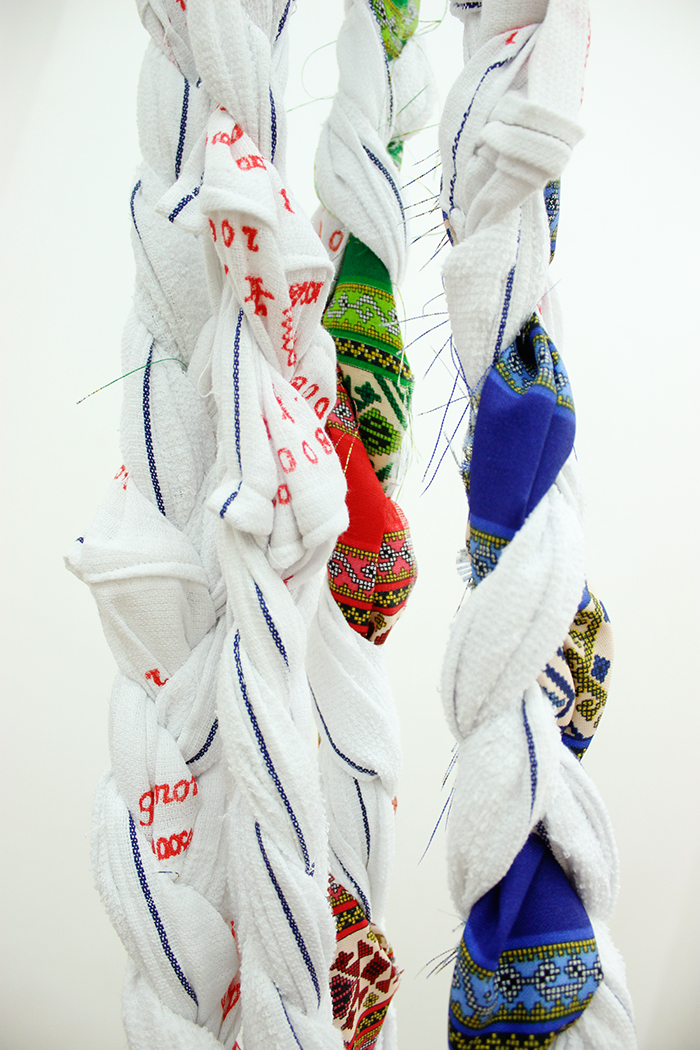Shows
Dexter Syd’s “Identity Crisis”


The history of the Philippines has created quite a cross-cultural mix, one where the notion of identity crisis is not so foreign. Chinese-Filipino artist Dexter Sy examines this concept in his visually stunning show, “Identity Crisis,” at 1335 Mabini gallery in Manila. The show is a witty, satirical and very personal critique on Sy’s experience as part of the Filipino-Chinese subculture. Each of his works reads like a page from his diary, as he explores the layers of the Chinoy [Chinese-Filipino] experience in the Philippines and the issues that can arise from having a diverse, cultural heritage.
Sy’s carefully composed and colorful paintings have been influenced by both Chinese folk art and the artist’s interest in heavy metal music. His use of ink and metallic pen on acrylic, which gives the impression of embroidery threads from a distance, reflects his refined artistic technique.
The Self Recognized by the Others (2015), is a portrait of the artist’s family rendered in mixed media on canvas. Everything about this family portrayal is ordinary, except for the fact that the subjects are all wearing the black-and-white face paint made famous by the American rock band Kiss. The artist explains, “In the Philippines, when people find out that you are Chinese-Filipino they assume that you are rich, but such is not always the case. When you see metal bands with their make-up and costumes, you may make the assumption that they could be violent, but such is not always the case.” The portrait painting is replete with repetitive, multicultural symbolism that often decorates the background of Sy’s pieces, including stylized mountains borrowed from traditional Chinese paintings, which are floating together with sacred hearts, eyes, suns, snakes and even human excrement in emoji-form.


Sy’s artwork from which the show takes its title, Identity Crisis (2015), is a dreamlike collage of random memories from the artist’s childhood, arranged in an almost yin-yang-like composition, with an image of the artist’s family at the center. Chinese children in traditional dress are juxtaposed with Catholic imagery to signify the confusion the artist experienced while growing up between the two different cultures. Other images of dancing teenage girls in mini-dresses perhaps reference the resultant disintegration of both traditional Chinese and Filipino values.
In his large-scale installation entitled DNA (2015), Sy highlights the cheap, cotton hand towels printed on with the phrase “Good Morning,” which are made in China and ubiquitous in the Philippines, where they are used by Filipino drivers, laborers and small children alike to wipe away sweat. Sy has interwoven these “Good Morning” towels (as they are called in the country) with textiles featuring patterns of indigenous Filipino motifs. In doing so he created a double helix-like rope, which is suspended from the ceiling of 1335 Mabini like a composite of Filipino-Chinese identity.
Dexter Sy’s Identity Crisis” is on view at 1335 Mabini, Manila, until September 11, 2015.








